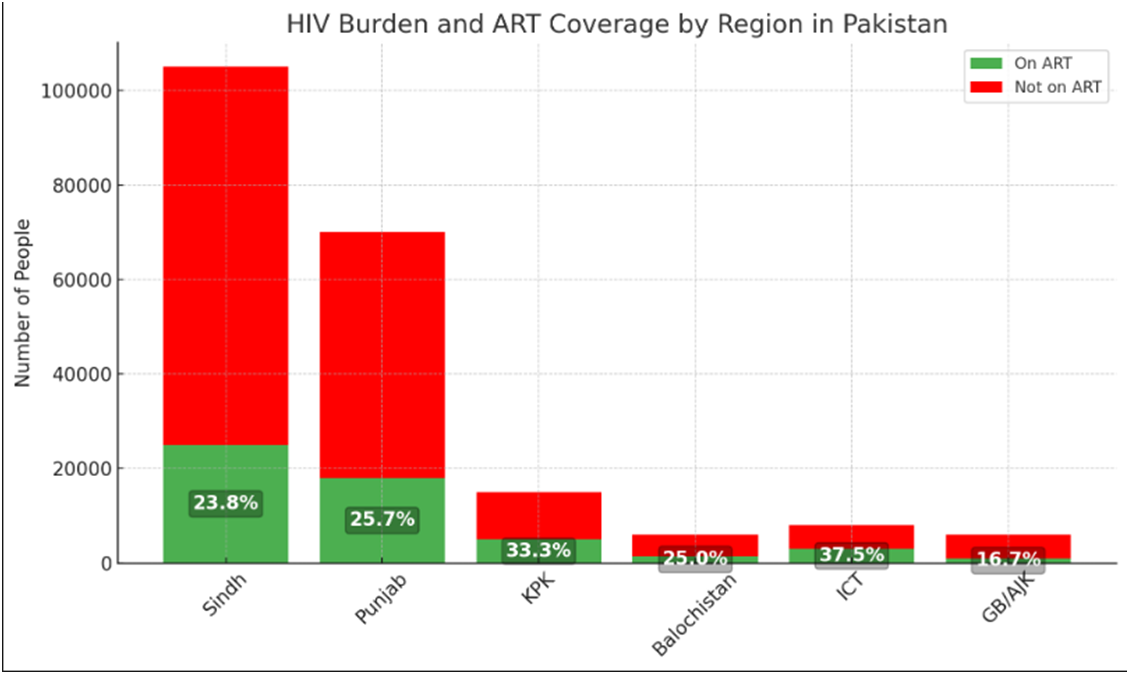HIV/AIDS Policy Recommendations for Pakistan
Abstract
Objectives: This study aims to develop national HIV policy recommendations for Pakistan that aligns with global best practices. The objectives are to identify evidence-based strategies from high-performing countries, assess Pakistan’s policy and programmatic gaps, and propose actionable recommendations for achieving the UNAIDS 95-95-95 targets by 2030.
Design: A mixed-methods policy analysis was conducted. The approach combined comparative review, secondary data synthesis, and stakeholder perspectives to evaluate Pakistan’s HIV response and identify feasible interventions.
Setting: The study focuses on Pakistan’s national HIV/AIDS response across all provinces and federally administered territories, covering both public sector and non-governmental service delivery systems.
Participants: Key informant insights were derived from published stakeholder consultations and institutional reports representing national and provincial AIDS programs, international donors, and community-based organizations.
Interventions: The proposed roadmap recommends scalable interventions including decentralised HIV testing, improved ART logistics, legal reform for stigma reduction, and sustainable financing models.
Main Outcome Measures: Primary outcome indicators include ART coverage, viral suppression, linkage to care, and policy feasibility assessed against global and regional comparators.
Results: Findings reveal that only about 38 percent of people living with HIV in Pakistan know their status, 25 percent receive ART, and fewer than 15 percent achieve viral suppression. Key barriers include service centralisation, stock-outs of essential drugs, stigma, and limited legal protection for key populations. International experiences from the United States, Canada, and the United Kingdom demonstrate the effectiveness of community-based and rights-driven models.
Conclusions: Pakistan’s progress toward HIV control remains constrained by structural, legal, and financial challenges. Achieving the UNAIDS 95-95-95 targets requires decentralised service delivery, sustainable domestic financing, and integration of community partnerships within a rights-based public health framework.
Citation: (formatted-apa)
License
Copyright (c) 2025 Dr. Hassan Khan (Author)
This work is licensed under a Creative Commons Attribution 4.0 International License.


